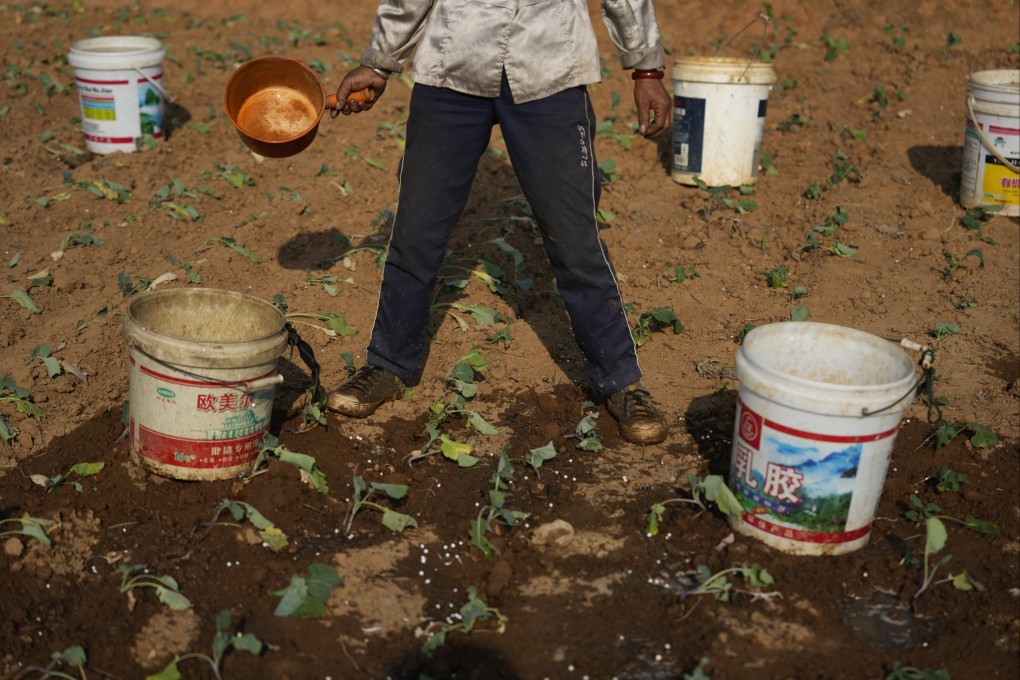Coronavirus: Chinese farmers watch vegetables rot as zero-Covid curbs disrupt transport
- Farmers across China are being forced to destroy fields of crops because regional virus controls are preventing transport to market
- Many farmers are fretting over whether to reduce production next year to cut losses, a possible blow to China’s food security ambitions

Gruelling coronavirus restrictions are forcing desperate Chinese farmers to destroy their crops because they are unable to sell their produce, highlighting the heavy economic toll of stringent restrictions and the potential threat to food security.
Local media have reported that farmers across China are struggling to sell their harvest because regional virus controls are preventing travel through many rural areas.
Farmers from provinces such as Henan, Gansu, Shandong and Hebei provinces have been forced to bulldoze fields of vegetables so they can sow seeds for the next crop, according to reports.
Ruzhou city in Henan province has produced 3.5 million kilograms of spring onions, nearly 1 million kilograms of spinach and 191 million kilograms of Chinese cabbage this harvest, but locals can consume only about a tenth, state media have reported. Most of the rest is stuck in nearby villages because trucks cannot enter to collect the vegetables.
State media also reported a farmer in Shandong had to bulldoze tens of thousands of kilograms of vegetables because no one could pick them up and transport them to market.
The virus restrictions are starting to filter through to consumers in China. The consumer price index rose by 2.1 per cent in October from a year earlier, while food prices rose by 7 per cent in the same period, compared with 8.8 per cent growth in September.
